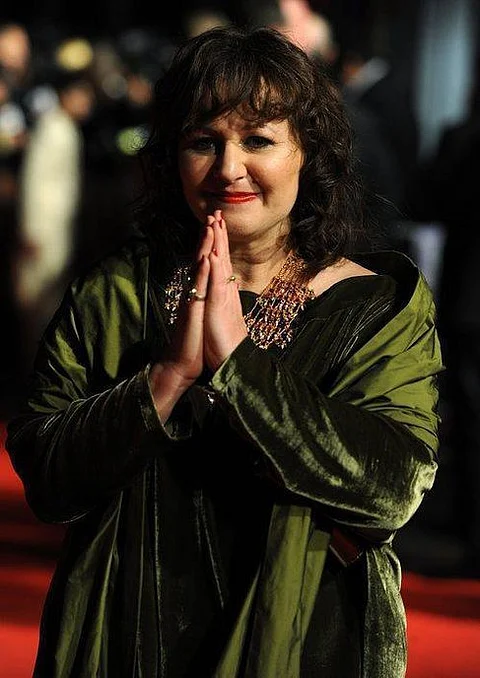Who made 'India’s Daughter'?
Chitra Subramaniam | The News Minute | March 18, 2015 | 4.27 pm IST
This is a story of what "India’s Daughter" could have been - a compassionate and soul-searching documentary on the reality of rapes worldwide with Jyoti Singh’s case as one, if not the most, barbaric instances of gangrape and violence against women. Instead, the film which has been praised and criticised in India and abroad has also left a series of questions in its wake, principal among which is what was the final director and producer Leslee Udwin hoping to achieve in a story where over 40 of the 60 minutes of the film’s duration (BBC cut) is devoted to victim bashing by rapists and lawyers?
A lot has been written about the film and more will certainly follow as the government of India decides whether or not to lift an advisory banning the telecast of the documentary in India on March 4 2015. Our interest in the controversy was kindled by a November 2014 page on the website of the International Documentary Film Festival Amsterdam (IDFA) where Anjali Bhushan and Leslee Udwin are listed as directors of the documentary. They are also listed as producers with Bhushan representing her company Apricot Sky Entertainment and Udwin representing her company Assassin Films Limited. The post which The News Minute (TNM) has seen is no longer available. The IDFA’s website now only shows Udwin as the filmmaker of "India’s Daughter".
“I am deeply hurt and disturbed by the outcome of this documentary - I had approached Leslee with the idea of making a film on the issue of rape and wanted to base it in New Delhi because the dreadful December 16 incident took place in my vicinity, where I grew up,” said documentary filmmaker Anjali Bhushan who was dropped from the project in September 2014.
“As a filmmaker, and a woman, I felt I had to say something,” she said. Bhushan issued a statement last week and it is reliably learnt that she and a few others are weighing all their options.
The News Minute sent a set of question to Udwin. She answered some and ignored some. She said she was not aware of the BBC advancing the telecast and found out about it during her trip back to London from New Delhi. She was silent on our questions on Bhushan. Pressed, she said Bhushan was “…dropped from the team for working against the film, breaching confidentiality, falsifying accounts, blackmailing her employer, and other material breaches.” She however did not respond to who the employer was - was it the BBC or her company Assassin Film Limited? We know from reliable sources that Bhushan and Udwin's companies were in a co-production. So who was the employer?
"India’s Daughter" in its current avatar is a one-sided view of a many-sided reality seeking to project an image of India which fits into a limited view. Leading activist Kavita Krishnan who appears in the film has said she is disturbed with the ethical and legal issues raised by the film. While not in favour of the ban, Krishnan has asked why Udwin asked Jyoti’s parents if their daughter required their permission to stay out after 9pm.
Sources told TNM that Bhushan played a key role in gaining access to Mukesh as well as his lawyers and all the key characters around whom the documentary revolves. Tihar jail, where Mukesh is on death row, has rarely if ever granted permission to film the inmates and there was widespread applause for the access which was secured. Now it seems only half the story of how that access was achieved is in the public domain. For example, advocacy elements are missing from the film. International data on rape is also missing from the film suggesting that either BBC did not inform Udwin about their final cut or Udwin did not share what she knew with others back in India.
Udwin told TNM that Bhushan was dropped from the project because she was blackmailed by Bhushan who allegedly demanded Rs 10 lakhs for her boyfriend to “solve the prison permissions” and which the pair had allegedly tried to dislodge through their close relationship with the DG Tihar. “There was nothing to solve, the permissions were cast iron and I complied with them. She passed on threats ostensibly made, as she said, by the DG Tihar (government) to have me arrested and take my visa away…” Udwin said.
At the time of writing people who TNM has spoken to have said that contractual obligations have not been respected and they are weighing their options as the issue is no longer about the film but one of professional hygiene which includes contractual obligations. People including a key translator have not been paid since many of them worked on the principal that this was an advocacy film, not a commercial venture and payments and fees were important but not critical enough to come in the way of getting the documentary out.
The bad news always comes later and that is what seems to be happening as women’s groups, activists, lawyers and India watchers have asked how a government which allowed the documentary film to be shot in Tihar jail turned around and banned its showing. Something is seriously wrong somewhere and the entire blame cannot be placed at the door of India and Indians.
Watch this space.

